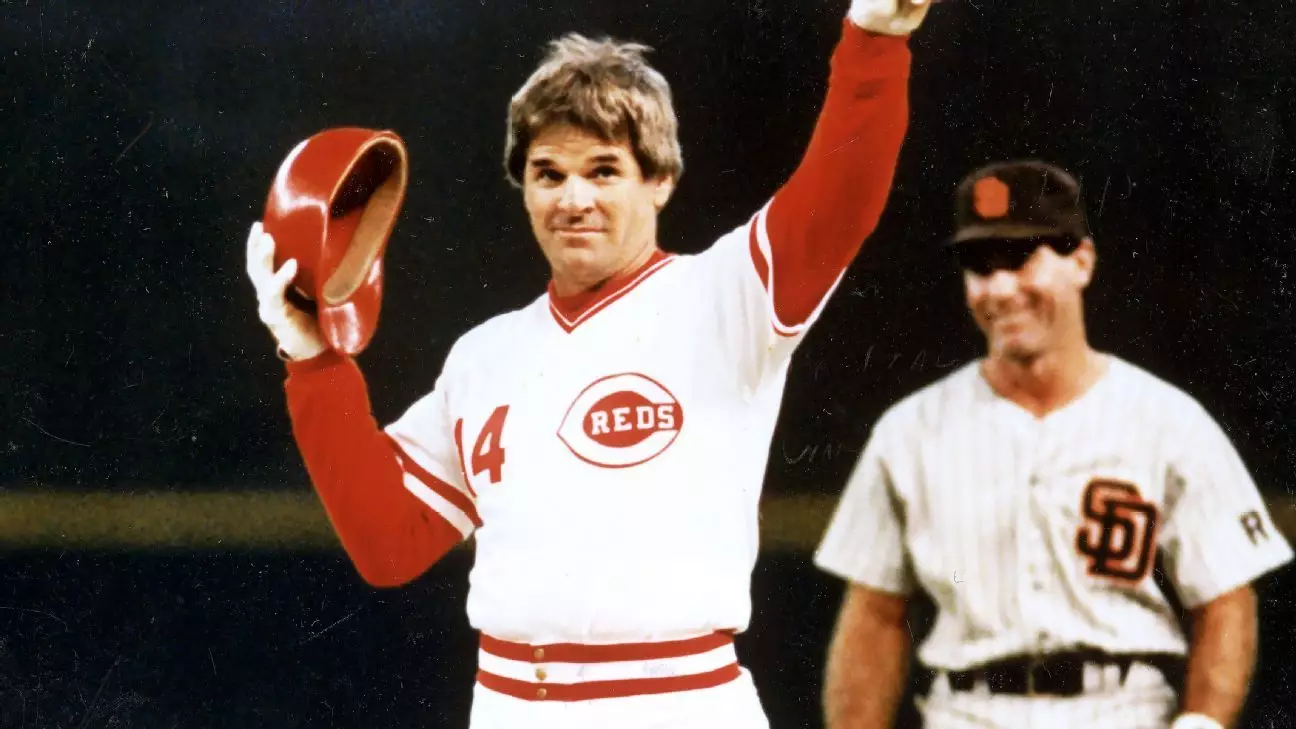Pete Rose, an emblematic figure of baseball, has passed away at 83, confirmed by the Clark County medical examiner. Known for his unyielding athleticism and infamous gambling scandal, Rose leaves behind a complex legacy that intertwines sparkling sports achievements with deep-rooted controversy.
Arguably, few players in Major League Baseball (MLB) history can boast a resumé as dazzling as Pete Rose’s. Holding the record for the most hits in MLB history with 4,256, he outpaced the legendary Ty Cobb by 67 hits, establishing himself as a titan of the sport. His formidable career spanned over two decades, marked by numerous accolades, including three batting titles, an impressive 17 All-Star selections, and the prestigious title of National League MVP in 1973.
Moreover, Rose’s storied tenure with the Cincinnati Reds, especially during the era of the “Big Red Machine,” showcased his prowess as a player who thrived in high-stakes situations. His contributions helped the Reds secure back-to-back World Series titles in 1975 and 1976, highlighting his capacity for stellar performance. Yet it was not just his statistics that made him an icon; it was his relentless pursuit of victory—evidenced in moments like the infamous 1970 All-Star Game, where he crashed into catcher Ray Fosse, embodying his nickname “Charlie Hustle.”
Despite an illustrious career, Rose’s narrative is inextricably linked to his fall from grace. In 1989, the looming specter of gambling cast a pall over his legacy. Following an MLB investigation that unearthed evidence of his involvement in betting on baseball games—including those involving his own team—the Baseball Commission imposed a lifetime ban on him. This decision sparked heated debates about the integrity of the game, as Rose’s actions rattled the trust fans held in their heroes.
Despite his efforts to contest the ban, even engaging in a protracted legal battle, he ultimately opted to accept his punishment, a choice some speculate was made with hopes of eventual reinstatement. Yet, the reinstatement expectancies were baseless; time and again, his applications—most notably a last push in 2015—met with rejection. Critics often pointed to his failure to comprehensively admit his wrongdoing until later in life, marking a persistent barrier to his return to the game he cherished.
The subject of Rose’s potential induction into the Hall of Fame remains a point of contention among baseball purists and casual fans alike. While his on-field accomplishments speak volumes, the shadow of his gambling transgressions looms larger than his remarkable stats. Many argue that his involvement in betting should disqualify him from Hall of Fame recognition, while others insist that talent and performance should be the sole metrics for such honor.
Even after writing an autobiography in 2004 where he finally admitted to betting on baseball, many resisted the notion of his reinstatement. Rose’s heartache became emblematic of a larger struggle within the sports community as organizations grapple with the intersection of personal conduct and athletic achievement. In this light, Rose’s legacy represents both a warning and an inspiration; a testament to both the brilliant possibilities and stark consequences that accompany greatness in sports.
In passing, Pete Rose leaves an imprint on the world of baseball that resonates far beyond statistics and awards. He remains a polarizing yet undeniably influential figure whose story serves as a reminder of both the triumphs and pitfalls of athletic success. The outpouring of grief from fans, especially from the Reds, speaks to the love and admiration many held for Rose, despite his flaws.
As debates continue regarding his Hall of Fame eligibility and discussions anger over his gambling scandal, Pete Rose’s legacy invites reflection—on what it means to be a sports icon and the weight of personal decisions in shaping a public persona. Whether one views him as a misunderstood genius or a cautionary tale, his impact on the sport is indisputable. In a world where integrity and achievement often dictate a player’s narrative, Rose’s life echoes as a complicated tapestry of talent, ambition, and regret.


Leave a Reply